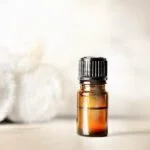Aromatherapy has been a popular practice for centuries, known for its therapeutic effects on the mind and body. In recent years, there has been growing interest in exploring the potential benefits of aromatherapy for cancer patients. This article delves into the question, “does aromatherapy help with cancer?” and aims to provide a comprehensive overview of the connection between aromatherapy and cancer.
Aromatherapy is a holistic healing treatment that uses natural plant extracts, known as essential oils, to promote health and well-being. These essential oils are believed to have various therapeutic properties that can positively impact physical and emotional health. The use of aromatherapy in cancer care has gained attention for its potential to alleviate symptoms, improve quality of life, and complement traditional cancer treatments.
As we explore the role of aromatherapy in cancer care, it is important to understand how it works within the body and its potential impact on cancer cells. Additionally, we will examine scientific research and evidence that supports the use of aromatherapy in cancer treatment, as well as safety considerations and different techniques for integrating aromatherapy into cancer care plans.
Join us on this journey as we unravel the potential benefits and considerations of using aromatherapy for those affected by cancer.
Understanding Aromatherapy
Aromatherapy is the use of essential oils to promote healing and overall well-being. Essential oils are highly concentrated plant extracts that can be inhaled, applied topically, or ingested in some cases. When it comes to cancer patients, aromatherapy is often used as a complementary therapy to alleviate symptoms and improve quality of life. In this section, we will delve into what aromatherapy entails and how it works in the body.
What Aromatherapy Entails
Aromatherapy involves the use of essential oils derived from various plants, flowers, and herbs. These oils can be diffused into the air, added to bath water, or applied directly on the skin through massage or compresses. Some individuals also use essential oils internally under the guidance of a qualified practitioner. Aromatherapists believe that these natural plant essences have therapeutic properties that can positively affect physical and emotional health.
How Aromatherapy Works in the Body
When essential oils are inhaled, they stimulate the olfactory system which then sends signals to the brain’s limbic system – the area that governs emotions and memories. This interaction may trigger certain responses in the body such as relaxation, pain relief, or improved mood.
When essential oils are applied topically, their compounds are absorbed through the skin and may enter the bloodstream to exert their effects on a physiological level. The specific mechanisms by which aromatherapy works are still being studied, but there is evidence to suggest that it can influence neurotransmitters and hormones in the body.
As we continue exploring aromatherapy and its potential benefits for cancer patients throughout this article, it’s important to keep in mind that while aromatherapy might provide relief for certain symptoms like anxiety or nausea, it should not be viewed as a substitute for conventional cancer treatment modalities. However does aromatherapy help with cancer patients? Studies have shown promising results regarding its effectiveness as a complementary therapy in managing certain side effects of cancer treatment and improving overall well-being.
The Science Behind Aromatherapy
Aromatherapy is a complementary therapy that involves the use of essential oils to promote physical and psychological well-being. Many cancer patients turn to aromatherapy to manage symptoms such as pain, anxiety, and stress. But how does aromatherapy work in the context of cancer?
Essential Oils and Cancer Cells
Research suggests that certain essential oils may have properties that can impact cancer cells. For example, some studies have shown that certain essential oils have anti-inflammatory and antioxidant properties, which may help reduce inflammation and oxidative stress in the body, potentially influencing cancer cell growth.
Impact on Symptoms
In addition to their potential impact on cancer cells, essential oils used in aromatherapy may also help alleviate common symptoms experienced by cancer patients. For instance, lavender oil has been found to reduce anxiety and improve sleep quality, while peppermint oil may help relieve nausea and vomiting associated with chemotherapy.
Considerations for Cancer Patients
While there is some evidence suggesting the potential benefits of aromatherapy for cancer patients, it’s important for individuals undergoing cancer treatment to consult with their healthcare team before incorporating aromatherapy into their care plan. Some essential oils can interact with certain medications or may not be safe for use by individuals with compromised immune systems. It’s important for patients to work with qualified professionals who can provide guidance on safe and appropriate use of aromatherapy during cancer treatment.
Research and Evidence
When it comes to the question, “Does aromatherapy help with cancer?” there is ongoing research and evidence that suggests that aromatherapy can have positive effects on cancer patients. Several studies have been conducted to explore the potential benefits of using essential oils as a complementary therapy in cancer treatment.
Some of the key research findings supporting the use of aromatherapy in cancer treatment include:
- A study published in the European Journal of Oncology Nursing found that aromatherapy massage significantly reduced anxiety and depression levels in cancer patients.
- Research published in the Journal of Pain and Symptom Management showed that inhaling lavender essential oil can effectively reduce pain and improve quality of life for cancer patients.
- Another study in the Journal of Clinical Oncology reported that aromatherapy with frankincense oil led to a reduction in chemotherapy-induced nausea and vomiting.
Based on these research findings and more, it is evident that there is growing evidence to support the use of aromatherapy as a complementary therapy for cancer patients. While more research is still needed, these studies provide valuable insights into the potential benefits of incorporating aromatherapy into cancer treatment plans.
Aromatherapy Techniques
Aromatherapy is a holistic healing treatment that uses natural plant extracts to promote health and well-being. This therapy has been gaining attention in the field of cancer care as a complementary approach to alleviate symptoms and improve the quality of life for cancer patients. There are different methods of using essential oils for cancer patients, each with its unique benefits and applications.
One common method of aromatherapy for cancer patients is inhalation. This can be done through diffusers, steam inhalation, or simply inhaling the aroma directly from the bottle. Certain essential oils like lavender and peppermint have been found to help reduce anxiety, nausea, and fatigue in cancer patients undergoing treatment.
Another technique is topical application, where essential oils are diluted in carrier oils and applied to the skin during a massage or as part of skincare routines. This method may provide relief from pain, inflammation, and skin irritation caused by cancer treatments such as chemotherapy and radiation therapy.
Additionally, some cancer patients may benefit from oral ingestion of essential oils under the guidance of a qualified healthcare professional. However, this method should be approached with caution due to potential toxic effects if not used properly. It’s important for cancer patients to consult with their oncologist or integrative medicine specialist before using any form of aromatherapy to ensure safety and effectiveness.
| Aromatherapy Method | Potential Benefits |
|---|---|
| Inhalation | Reduces anxiety, nausea, and fatigue |
| Topical Application | Relief from pain, inflammation, and skin irritation |
| Oral Ingestion | Should only be done under healthcare professional guidance due to potential toxic effects |
Potential Benefits of Aromatherapy for Cancer Patients
Aromatherapy, the use of essential oils to promote physical and mental well-being, has been gaining attention as a complementary therapy for cancer patients. While it is not a cure for cancer, aromatherapy has shown potential benefits in managing symptoms and improving the quality of life for individuals undergoing cancer treatment. Here are some potential benefits of aromatherapy for cancer patients:
- Relief from nausea and vomiting: Certain essential oils such as ginger, peppermint, and lemon have been found to help alleviate chemotherapy-induced nausea and vomiting.
- Reduced anxiety and stress: Aromatherapy can have a calming effect on cancer patients, helping to reduce feelings of anxiety and stress often associated with the disease and its treatment.
- Pain management: Some essential oils, including lavender, chamomile, and eucalyptus, possess analgesic properties that may help in reducing pain experienced by cancer patients.
Furthermore, aromatherapy can also contribute to overall well-being by promoting relaxation, improving sleep quality, and enhancing a sense of comfort for individuals going through the challenges of cancer treatment. It is important to note that while aromatherapy may offer relief from certain symptoms and improve quality of life for cancer patients, it should not replace conventional medical treatment.
Incorporating aromatherapy into the care plan for cancer patients should be done in consultation with healthcare providers. Proper guidance is crucial to ensure the safe use of essential oils alongside standard cancer treatments. With the right approach, aromatherapy may serve as a valuable supportive measure in managing symptoms and enhancing the well-being of individuals living with cancer.
Safety Considerations
Aromatherapy is a complementary therapy that uses essential oils to promote physical and psychological well-being. Many cancer patients turn to aromatherapy to manage symptoms and improve their quality of life during and after cancer treatment. However, it is essential for cancer patients to be aware of the potential safety considerations, precautions, and risks associated with using aromatherapy as part of their treatment plan.
One crucial safety consideration for cancer patients using aromatherapy is the potential interactions between essential oils and their ongoing cancer treatments. Some essential oils may interfere with certain medications or treatments, so it is important for patients to consult with their healthcare team before incorporating aromatherapy into their care plan. Additionally, individuals undergoing chemotherapy or radiation therapy may have compromised immune systems, making them more susceptible to infections from improperly diluted or contaminated essential oils.
Precautions should also be taken when applying essential oils directly to the skin, as some oils can cause allergic reactions or skin irritation. Cancer patients should perform a patch test before using any new essential oil and always dilute them with a carrier oil before applying them topically.
It is also crucial for patients to use high-quality, pure essential oils from reputable sources to minimize the risk of adverse reactions. Overall, while there are potential benefits of using aromatherapy for cancer patients, it is important for individuals to proceed with caution and seek guidance from their medical team.
| Safety Considerations | Precautions |
|---|---|
| Potential interactions with cancer treatments | Consultation with healthcare team |
| Compromised immune system | Dilution and contamination concerns |
| Allergic reactions and skin irritation | Patch testing and proper dilution |
Integrating Aromatherapy Into Cancer Care
In conclusion, the integration of aromatherapy into cancer care has shown promising results in managing symptoms and improving the quality of life for cancer patients. While more research is needed to fully understand the impact of essential oils on cancer cells, studies have provided evidence to support the use of aromatherapy as a complementary therapy in cancer treatment.
The potential benefits of aromatherapy for cancer patients include alleviating pain, reducing anxiety and stress, and providing a sense of comfort and relaxation.
Hospitals and treatment centers are increasingly recognizing the value of incorporating aromatherapy into cancer treatment plans. From diffusing essential oils in patient rooms to offering massage or bath treatments with essential oils, healthcare providers are exploring various techniques to support their patients’ well-being. By providing a holistic approach to care, hospitals can address not only the physical symptoms of cancer but also the emotional and psychological impact it has on patients.
It is important to note that while aromatherapy can offer benefits for cancer patients, safety considerations must be taken into account. Patients should consult with their healthcare providers before using essential oils, especially if they are undergoing specific cancer treatments or have pre-existing health conditions. Overall, the use of aromatherapy in cancer care offers a potential avenue for improving the overall well-being and comfort of patients undergoing treatment.
Frequently Asked Questions
What Helps Cancer Patients Live Longer?
Cancer patients can potentially live longer by receiving early and effective treatment, maintaining a healthy lifestyle, undergoing regular medical check-ups, and having a strong support system. Additionally, participating in clinical trials and staying informed about the latest research can also contribute to better outcomes.
What Helps Survive Cancer?
Surviving cancer often involves a combination of factors such as early detection, timely and appropriate treatment, strong social support, good mental and emotional health, and a commitment to follow-up care. Adhering to medical advice and making positive lifestyle changes can also significantly improve the chances of surviving cancer.
Does Positivity Help Cancer?
Positivity can play a crucial role in helping cancer patients cope with their diagnosis and treatment. While it may not directly impact the progression of the disease, maintaining a positive mindset can improve overall well-being, reduce stress levels, enhance resilience, and even possibly contribute to better treatment outcomes.
Positivity can also foster better communication with healthcare providers, leading to more personalized care.

Are you looking for a natural way to improve your health and wellbeing?
If so, aromatherapy may be the answer for you.





